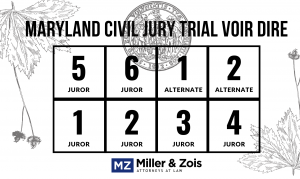A former insurance law student of mine asked this week whether Pittsburgh Steelers quarterback Ben Roethlisberger’s failure to wear a helmet in his motorcycle accident earlier this month would be contributory negligence under Maryland law. Good question! Under the current state of the law, the answer is a qualified no.
The Maryland Court of Appeals addressed this issue 36 years ago in Rodgers v. Frush, 257 Md. 233 (1970). This case involved a motorcycle collision case in PG County where the Defendant sought to introduce evidence at trial from a medical doctor who would testify that the Plaintiff’s failure to wear a helmet exacerbated his injuries from the motorcycle accident. The Plaintiff argued that this evidence was not relevant to contributory negligence because it did not involve the Plaintiff’s or Defendant’s standard of care. The court agreed, and our high court affirmed. The court noted that while Maryland had passed a helmet law three years after the accident, this did not establish a standard of care.
I earlier said the answer is a qualified no because the court said there was not a standard of care that one should wear a helmet. There is now a helmet law in Maryland. But this appears to be dicta, given the core of the court’s holding that failing to wear a helmet does not go to the question of the standard of care.
A related question is whether this evidence could be admitted under the doctrine of avoidable consequences. Plaintiff compliance with the appropriate safety requirements could have avoided similar to the contractual rule of mitigation of damages, the damages that could have been avoided are reduced from the recovery.
The Court of Appeals in Rodgers considered this issue. The court determined that the doctrine of avoidable consequences applied only to conduct that occurred after the tort (again, analogous to the mitigation of damages). The court also cited a North Carolina case with approval that articulated that it also would not apply the doctrine of avoidable consequences because it would (1) not ask jurors to parse damages because this would invite verdicts on prejudice and sympathy contrary to the law, (2) create ‘unnecessary conflicts in result,’ and (3) degrade the law by reducing it to a game of chance. (I frankly do not understand how the latter two factors apply to the doctrine of avoidable consequences.)
The arguments on this helmet issue are very similar to the arguments on failing to wear a seat belt issue, which was addressed in an earlier blog post.
Here is how a few other jurisdictions have addressed this issue:
 Maryland Injury Law Center
Maryland Injury Law Center



